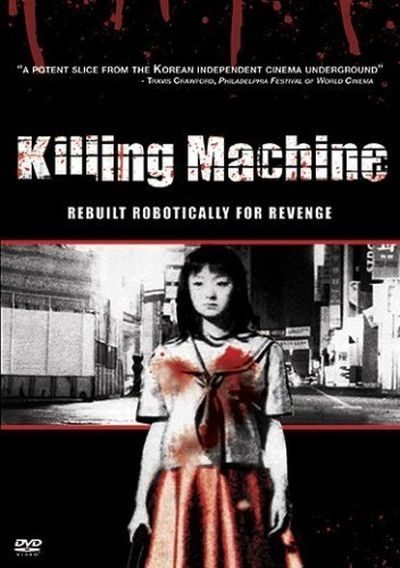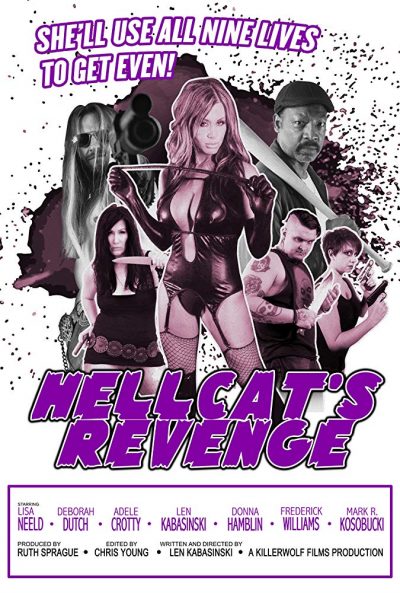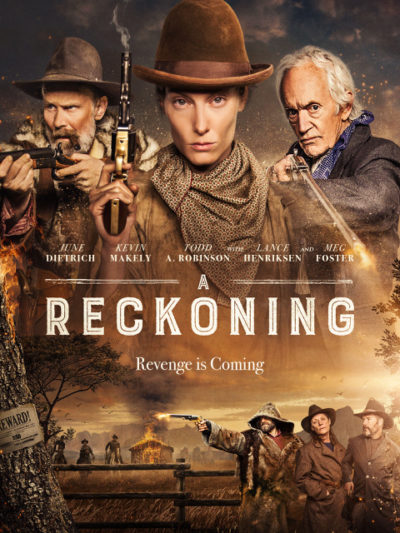Literary rating: ★★
Kick-butt quotient: ☆☆☆½
 This feels less like a novel, than a novelization of a screenplay, adapted by a not particularly proficient writer. The text is littered with paragraphs which seem more like stage directions than literature, and is startlingly repetitive. For example, in one section near the beginning of the book, five of seven consecutive paragraphs start with, “As she/Kayla…” It’s not necessarily a bad screenplay, with an idea containing some potential. But it would be in need of several rewrites before any studio exec would sign off on it.
This feels less like a novel, than a novelization of a screenplay, adapted by a not particularly proficient writer. The text is littered with paragraphs which seem more like stage directions than literature, and is startlingly repetitive. For example, in one section near the beginning of the book, five of seven consecutive paragraphs start with, “As she/Kayla…” It’s not necessarily a bad screenplay, with an idea containing some potential. But it would be in need of several rewrites before any studio exec would sign off on it.
The heroine is the Kayla mentioned, an engineering student at South Dakota State University, who is present when ISIS terrorists attack the campus. She and best friend Olivia, an aspiring nurse, take down the attackers before the intended massacre can be executed, and become media darlings as a result. This turns to tragedy when an apparent revenge bomb kills Kayla’s family. Seeking vengeance, the pair accept an offer from the mysterious Mr. Hightower, to join a secret government program and train as anti-ISIS insurgent. They’re inserted into Al-Raqqah, the capital of the ISIS caliphate in Syria, in order to sabotage and disrupt the group’s operations, causing as much chaos and carnage as possible.
They certainly succeed, and there’s no shortage of incidents, from gun-battles in the streets through to a daring rescue attempt on a capture British airman. These are when Hanson is at his best, although the ineptness of ISIS is questionable – that they are so easily and repeatedly bested by a pair of students after a few months of training is difficult to accept. Indeed, how quickly could someone go from no knowledge of Arabic to being able to pass impeccably as a native? For it’s not as if language was Kayla and Olivia’s only area of education. There’s also the “having to dress as a man” thing, which is unconvincingly glossed over with the wave of a fake beard (the cover is not exactly an accurate depiction of their undercover appearance!). Throw in an apparently inevitable bisexual subplot, and the dubious actions of the story’s antagonist – who literally keeps a journal in his desk, describing every aspect of his evil plan – and you’ve got more problems than solutions.
I did find the unrepentant villainy of ISIS somewhat refreshing: there’s no moral shades of grey here, they are straightforward bad guys, with very few redeeming features, and it’s easy to root for the heroines. Though the book doesn’t address the moral hypocrisy at its core: Olivia and Kayla are basically turned into terrorists themselves. You could take a speech by Hightower – “You will strike from the shadows to damage ISIS using any method at your disposal, whether that is through assassination, humiliation, or intimidation… The obvious goal is to eliminate as many terrorists as possible” – change a couple of words, and have Al-Qaeda rhetoric. But it’s okay, because they’re on our side? Still, this makes few claims to be other than a straightforward tale of action and courage, albeit one probably too simplistic for its own good.
Author: K. Hanson
Publisher: Amazon Digital Services, available through Amazon, both as a paperback and an e-book
Book 1 of 2 in the Kayla Falk series.





 This takes place in upstate New York during the 1812 war between Britain and America, when combatants are courting the Mohawk tribe to join forces with them. The natives are suspicious of both, and won’t commit to either. Working for the British is Joshua (Farren), who is in a slightly odd, three-way relationship with Mohawk warrioress Oak (Horn) and fellow native Calvin (Rain). On the other side is Hezekiah Holt (Buzzington), and his small band of Americans, who are out for redcoat blood. When they blame the Mohawk for murdering some of their number, their violence quickly extends to encompass Oak and Calvin, as well as Joshua. After Oak is left all alone, she goes on the war-path to take revenge on Holt and his men.
This takes place in upstate New York during the 1812 war between Britain and America, when combatants are courting the Mohawk tribe to join forces with them. The natives are suspicious of both, and won’t commit to either. Working for the British is Joshua (Farren), who is in a slightly odd, three-way relationship with Mohawk warrioress Oak (Horn) and fellow native Calvin (Rain). On the other side is Hezekiah Holt (Buzzington), and his small band of Americans, who are out for redcoat blood. When they blame the Mohawk for murdering some of their number, their violence quickly extends to encompass Oak and Calvin, as well as Joshua. After Oak is left all alone, she goes on the war-path to take revenge on Holt and his men. Marginally competent, and just not very exciting, this low-budget offering is the story of December (Kurishingal). As a young girl, she watched as the rest of her family was slaughtered by Law (Ramsey) and his villains, the result of a debt owed by her father. A decade or so late, she has grown up and taken to the streets as a vigilante, seeking vengeance on those responsible. Or, until she finds them, any other perpetrators she comes across during her night-time ramblings through the mean back alleys of the city. Helping her mission, is that she now works for the police, which puts her in a prime position to ensure, for example, that any evidence pointing in her direction goes “missing”.
Marginally competent, and just not very exciting, this low-budget offering is the story of December (Kurishingal). As a young girl, she watched as the rest of her family was slaughtered by Law (Ramsey) and his villains, the result of a debt owed by her father. A decade or so late, she has grown up and taken to the streets as a vigilante, seeking vengeance on those responsible. Or, until she finds them, any other perpetrators she comes across during her night-time ramblings through the mean back alleys of the city. Helping her mission, is that she now works for the police, which puts her in a prime position to ensure, for example, that any evidence pointing in her direction goes “missing”. If you took four different films, by four different directors, and edited them together into a single entity, you might end up something similar to this. Oh, make no mistake: I still enjoyed most of this. It just doesn’t feel like a coherent whole, perhaps because it is a spin-off involving some of the same characters from an earlier film, Baby. For at least three-quarters of it, however, not having seen its predecessor shouldn’t be too much of a problem.
If you took four different films, by four different directors, and edited them together into a single entity, you might end up something similar to this. Oh, make no mistake: I still enjoyed most of this. It just doesn’t feel like a coherent whole, perhaps because it is a spin-off involving some of the same characters from an earlier film, Baby. For at least three-quarters of it, however, not having seen its predecessor shouldn’t be too much of a problem. You’ll understand why, when skimming leisurely through a streaming channel on the Roku, I screeched to a halt at this title. Even though the “official” English title is just Killing Machine, I knew I immediately had to watch it. Yet, while the title
You’ll understand why, when skimming leisurely through a streaming channel on the Roku, I screeched to a halt at this title. Even though the “official” English title is just Killing Machine, I knew I immediately had to watch it. Yet, while the title  The leader of all-girl biker gang the Hellcats is brutally beaten and murdered, by Repo (Kosobucki). Her replacement, Kat (Neeld), tries to get to the bottom of the killing, and take vengeance on the perpetrators. Complicating matters is Repo’s position in the Vipers, another motorcycle club with whom the Hellcats have previously had generally friendly relations. Part of that is due to Kat’s on-again, off-again relationship with their leader, Snake (Kabasinski); he also has the advantage of being cosy with some of the local cops, who divert confiscated drugs back to the Vipers for resale. But was he aware of – or did Snake perhaps even order? – Repo’s actions?
The leader of all-girl biker gang the Hellcats is brutally beaten and murdered, by Repo (Kosobucki). Her replacement, Kat (Neeld), tries to get to the bottom of the killing, and take vengeance on the perpetrators. Complicating matters is Repo’s position in the Vipers, another motorcycle club with whom the Hellcats have previously had generally friendly relations. Part of that is due to Kat’s on-again, off-again relationship with their leader, Snake (Kabasinski); he also has the advantage of being cosy with some of the local cops, who divert confiscated drugs back to the Vipers for resale. But was he aware of – or did Snake perhaps even order? – Repo’s actions? This has the potential to be truly bad, and you need to be willing to look past ropey production values, a possibly deliberately shaky grasp of period (unless “Daisy” really was a popular girls’ name in early medieval times…) and uncertainty as to whether or not this is intended to be a comedy. Yet, I have to admire its “everything including the kitchen sink” approach: throwing together elements from genres as disparate as Vikings, zombies, aliens, sword ‘n’ sorcery and female vengeance shows… well, ambition, at the very least.
This has the potential to be truly bad, and you need to be willing to look past ropey production values, a possibly deliberately shaky grasp of period (unless “Daisy” really was a popular girls’ name in early medieval times…) and uncertainty as to whether or not this is intended to be a comedy. Yet, I have to admire its “everything including the kitchen sink” approach: throwing together elements from genres as disparate as Vikings, zombies, aliens, sword ‘n’ sorcery and female vengeance shows… well, ambition, at the very least. This got off to a frankly rocky start, to the point that a few pages in, this felt like it might become a very rare DNF (Did Not Finish) book. It’s an incredibly clumsy and stilted opening, depicting the internal conversation between Sailor Ray and the demon who inhabits her. Literally, “Why am I reading this?” bad. Still, I persisted: and in the end, the story redeemed itself, though the final third was considerably weaker overall.
This got off to a frankly rocky start, to the point that a few pages in, this felt like it might become a very rare DNF (Did Not Finish) book. It’s an incredibly clumsy and stilted opening, depicting the internal conversation between Sailor Ray and the demon who inhabits her. Literally, “Why am I reading this?” bad. Still, I persisted: and in the end, the story redeemed itself, though the final third was considerably weaker overall. Look, I tried. I really did. When I found my attention had drifted away from watching the film, in good faith, I rewound the film to the point where I’d lost interest, and took up the movie again the following day. After all, maybe it was me. But when I still could barely bring myself to finish this leaden lump of poorly-crafted revenge-fu… No, having gone above and beyond the required effort, it’s really not me. This is lacklustre stuff, to put it mildly, even by the generally low standards of Taiwan.
Look, I tried. I really did. When I found my attention had drifted away from watching the film, in good faith, I rewound the film to the point where I’d lost interest, and took up the movie again the following day. After all, maybe it was me. But when I still could barely bring myself to finish this leaden lump of poorly-crafted revenge-fu… No, having gone above and beyond the required effort, it’s really not me. This is lacklustre stuff, to put it mildly, even by the generally low standards of Taiwan. Considering how little actually happens here, I enjoyed this considerably more than expected. It kicks off with 19th-century settler Mary O’Malley (Dietrich) being informed her husband has been brutally slain. Despite the warnings of fellow settler Henry Breck (a small role for Lance Henriksen), Mary heads out on the trail through Oregon for revenge, looking for the serial killer responsible. He’s known as “Marrow” (Makely), for reasons which eventually become clear. She encounters Jebediah (Robinson), a bounty-hunter after Marrow who doesn’t appreciate the competition, and Barley (Crow), a trader who offers and receives temporary companionship.
Considering how little actually happens here, I enjoyed this considerably more than expected. It kicks off with 19th-century settler Mary O’Malley (Dietrich) being informed her husband has been brutally slain. Despite the warnings of fellow settler Henry Breck (a small role for Lance Henriksen), Mary heads out on the trail through Oregon for revenge, looking for the serial killer responsible. He’s known as “Marrow” (Makely), for reasons which eventually become clear. She encounters Jebediah (Robinson), a bounty-hunter after Marrow who doesn’t appreciate the competition, and Barley (Crow), a trader who offers and receives temporary companionship.